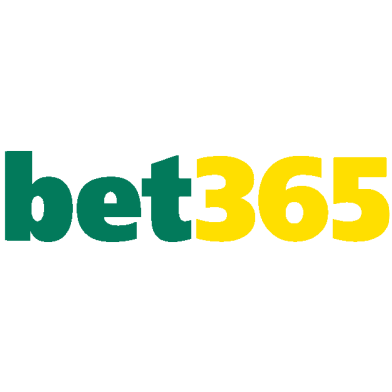Innovate Change
Innovate Change is a pioneering force in the realm of real money online casinos, where state-of-the-art technology converges with profound industry expertise to create unparalleled gaming experiences. Our mission is clear: to deliver practical, sustainable results that significantly impact our clients and their customers. With a steadfast commitment to continuous innovation, strategic insight, and uncompromising quality, we have become a trusted partner to some of the most forward-thinking, prosperous, and successful gaming organizations globally. Today, we proudly collaborate with a diverse roster of clients, from industry giants to ambitious startups, all united by a shared vision of excellence and growth.
Our Approach
At Innovate Change, we believe that the foundation of success lies in a meticulous, data-driven approach. Our team consists of intellectually curious, confident, and high-achieving individuals who value evidence-based decision-making over assumption. This dedication to data over personal opinion and rigorous analysis over casual conjecture defines our operational ethos. Regardless of a project's size or scope, we approach every challenge with an objective perspective, supported by thorough and meticulous research. This relentless pursuit of data ensures that we deliver not just the prevailing wisdom but also deep, sharp insights that give our clients a competitive edge. Our culture is built on this pursuit of excellence, accepting nothing less.
Culture and Values
Our culture at Innovate Change is one of rigorous intellectual pursuit and unwavering dedication to quality. We cultivate an environment where every team member is encouraged to challenge assumptions, ask probing questions, and seek out the most robust data available. This approach ensures that our recommendations and strategies are grounded in reality and tailored to deliver the best possible outcomes for our clients. We value diversity of thought and experience, knowing that it is through the combination of different perspectives that we can truly innovate and excel.
Client Partnerships
Our client partnerships are the cornerstone of our success. We work closely with our clients to understand their unique challenges and goals, tailoring our solutions to meet their specific needs. Whether it’s optimizing existing systems, developing new gaming platforms, or exploring innovative market strategies, our clients trust us to deliver results that drive their success. Our comprehensive understanding of the gaming industry, combined with our ability to leverage the latest technological advancements, ensures that we are always at the forefront of industry trends and developments.
Impact and Innovation
Innovation is at the heart of everything we do. We are constantly exploring new technologies, methodologies, and strategies to ensure that our clients stay ahead of the curve. From implementing advanced AI algorithms to enhance gaming experiences to developing secure and efficient payment systems, our solutions are designed to deliver practical, sustainable results. Our commitment to innovation extends beyond technology; it encompasses every aspect of our business, from how we approach problem-solving to how we interact with our clients and each other.
Careers at Innovate Change
At Innovate Change, we understand that our people are our greatest asset. Our team is made up of individuals from various backgrounds, whether they are straight from college, university, or business school, transitioning from different fields, or even after multiple career changes. This diversity of experience enriches our team and contributes to our success. We are looking for individuals who possess the energy, enthusiasm, and motivation to exceed expectations daily. If you have a passion for innovation, a commitment to excellence, and a desire to be part of a dynamic, forward-thinking team, we want to hear from you.
Joining Innovate Change means becoming part of a culture that values hard data, rigorous analysis, and the relentless pursuit of excellence. Our employees are encouraged to think critically, challenge assumptions, and push the boundaries of what is possible. We provide a supportive environment where continuous learning and professional development are prioritized, ensuring that our team members have the skills and knowledge they need to thrive in a rapidly evolving industry.
Why Choose Innovate Change?
Choosing Innovate Change means choosing a partner committed to your success. Our proven track record of delivering practical, sustainable results speaks for itself. We bring a unique blend of industry expertise, cutting-edge technology, and strategic insight to every project, ensuring that our clients receive the best possible service. Our dedication to innovation, quality, and client satisfaction sets us apart in the world of real money online casinos.
We invite you to join us on this exciting journey. Whether you are a potential client looking for a partner to help you navigate the complexities of the gaming industry, or a prospective employee eager to contribute to our mission, Innovate Change offers unparalleled opportunities for growth and success.
For more information about our services, our team, or career opportunities at Innovate Change, please visit our website or contact us directly. We look forward to hearing from you and exploring how we can work together to drive innovation and success in the world of real money online casinos.
Innovate Change Casino
Innovate Change Casino is a premier destination for real money online gaming, offering a diverse array of casino games designed to deliver the ultimate player experience. Leveraging the latest in gaming technology and industry insights, we provide a platform that is not only entertaining but also secure and user-friendly. Our extensive game library includes everything from classic table games and slots to cutting-edge live dealer experiences, ensuring there is something for every type of player.
At Innovate Change Casino, we prioritize fair play, transparency, and responsible gaming. Our commitment to these principles ensures that players can enjoy their gaming experience with confidence. We utilize advanced security measures to protect player data and transactions, maintaining the highest standards of integrity and trust.
Our platform is designed to be intuitive and accessible, whether you are a seasoned gamer or a newcomer. We continually update our offerings to include the latest gaming innovations, ensuring our players have access to the newest and most exciting games on the market. Our dedicated customer support team is available 24/7 to assist with any inquiries, ensuring a seamless and enjoyable gaming experience.
Innovate Change News
Innovate Change News is your go-to source for the latest updates and insights from the world of online gaming. As a leader in the industry, we provide comprehensive coverage of trends, innovations, and developments that matter to players, developers, and gaming organizations alike. Our news platform is dedicated to delivering timely, accurate, and engaging content that keeps our audience informed and ahead of the curve.
Innovate Change News covers a wide range of topics, including game releases, industry reports, regulatory updates, and expert analysis. Our team of experienced journalists and industry insiders work tirelessly to bring you the stories that shape the future of online gaming. Whether you're interested in the latest technological advancements, market trends, or player tips, Innovate Change News has you covered.
In addition to news articles, Innovate Change News features in-depth interviews with key industry figures, opinion pieces from thought leaders, and detailed reviews of new games and platforms. Our goal is to provide a comprehensive resource that supports the growth and development of the online gaming community.
Stay connected with Innovate Change News to stay informed about the dynamic world of online gaming. Whether you are a player, developer, or industry professional, our news platform is an invaluable resource for staying up-to-date with the latest happenings and insights.
We are present in several countries of the world
We would like to bring together as many users from all over the world as possible. That is why we are developing Innovate Change websites in different countries.
What we offer today
Independent bookmaker rankings
We draw up our ratings and collect your reviews to help other users evaluate the advantages and disadvantages of each licensed bookmaker. Bookmakers are compared in each of the 6 ratings through each of the key parameters. This allows users to choose a bookmaker that meets their expectations.
Sports forecasts with detailed statistics
Verified experts and tipsters publish their forecasts about upcoming events daily and provide detailed statistics. Anyone can analyze their results and the success of each one by reviewing the ROI and statistics of their forecasts, either from the beginning or the last 30 days.
Detailed information in the betting center
Our managers manually process all the official information about football, ice hockey and CS:GO championships. Thanks to this, we minimize errors and quickly publish the starting teams, standings, forecasts, statistics and odds of the bookmakers.
List of legal casinos in New Zealand
Here you will find a list of licensed online casinos in New Zealand. 100% legal casinos for safe, regulated and cheat-free gambling. Discover the best online casinos, place your bets and get the best promotions.
Expert articles
We prepare detailed previews of upcoming events for our users. We interview expert bettors so that our users can get to know betting trends better. Those who are interested in the current state of the betting market will be able to find analytical articles, articles on legislation, as well as interviews with bookmaker directors and much more on our website.
Tips for beginners
Our editors are constantly updating existing betting school articles and adding new ones. Those who are new to the world of betting can find in this section information about betting and its state legislation, types of bets or strategies to bet, among others. In the event that the user does not find an answer to his question, he can always ask our experts.
Solving problems with bookmakers
Innovate Change has been accepting complaints from users since 2014 and currently the vast majority of licensed betting houses cooperate with us. We review each complaint individually and contact the bookmaker directly, motivating a faster resolution of the user's problem by the bookmaker.
Contact us
We defend the legal operators, objective ratings and free forecasts and tips for our users. Gambling is a hobby and should be done for fun.
Show contact information










